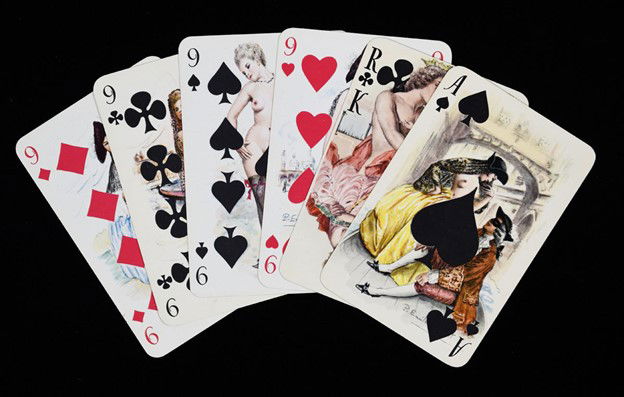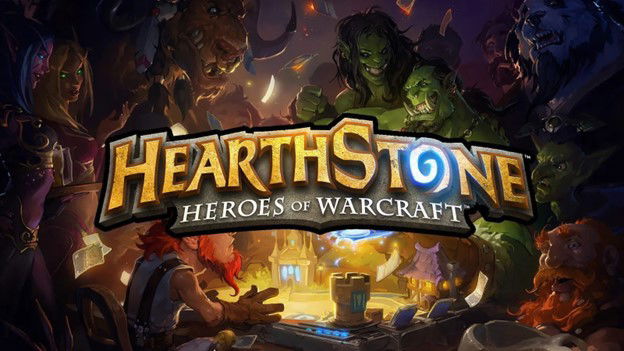What can a game invented in the 17th century with a traditional deck and another from 1993 featuring illustrated fantasy creatures possibly have in common?
Despite their variety, card games share several fundamental characteristics that make them universally famous. At their core, all card games revolve around a deck of cards, which can vary in size, type, and design. Whether it’s a standard 52-card deck or a 75-card Tarot deck, what makes it popular and engaging at its core is always the same. Here are some things you may (or may not) have considered about card games that will take your gameplay to the next level.
How Card Games Started?
The origin of card games is uncertain. However, some scholars believe they originated in China during the Tang Dynasty, while others suggest connections to tile games like dominoes, mahjong, or chess. Some even speculate they started as "play money" for gambling before becoming part of the games.
Yet, the earliest confirmed record is a 1377 manuscript written by a German monk, detailing the development of cards and their games. By the late 14th and early 15th centuries, European cards popularized the four suits: Swords, Clubs, Cups, and Coins, possibly derived from Tarot cards. Early cards were hand-painted, with Italian cards featuring a King, Queen, and Jack, while Spanish cards had no Queens, 10s, 8s, or 9s, resulting in a 40-card deck.

Card games have captivated players for centuries, evolving into timeless classics like poker, blackjack, and cribbage. These games have endured through generations, offering both strategic depth and entertainment. In the modern iGaming landscape, however, the demand for robust gameplay experiences has reshaped the way card games are presented and played.
From their classic roots to intricate narratives and stunning illustrations, card games have evolved into beloved favorites such as Magic: The Gathering, Pokémon TCG, Hearthstone, and Yu-Gi-Oh!. These games go beyond mere mechanics, each card and deck combination telling a unique story through lore, artwork, and strategic gameplay. This evolution has not only expanded the appeal of card games but also elevated them to a form of interactive storytelling and competitive strategy that resonates with players worldwide.
Notably, the revenue of the “Card Games” segment market was continuously increasing over the past years. In this scenario, Pokémon TGC was considered the best-selling card game in Japan between April 2023 and March 2024, with sales revenue totaling $857 million. Although gameplay mimics the story in the game or manga series, these games still carry much resemblance to the traditional card games.
Traditional Card Games vs. Card Video Games
If you ever played traditional card games like Blackjack, you know the gameplay revolves around statistical probabilities and quick decision-making. Players are dealt two cards and must decide whether to hit (draw another card), stand (keep their current hand), double down (double their bet and draw one more card), or split (if the two cards are of equal value, split them into two separate hands). The objective is to get as close to 21 as possible without exceeding it, while also considering the dealer's visible card.
Although it looks like a game of chance, getting close to 21 goes way beyond it. Strategies like card counting, knowing the deck and learning the probabilities of getting close to the desired number is what makes a good player stand out. On the other hand, in games like Magic: The Gathering, players build a deck from a vast pool of cards, each with unique abilities and effects. Gameplay involves drawing cards, managing resources (mana), and strategically playing cards to defeat the opponent.
MTG is also a game of strategic planning, where players must anticipate and counter their opponent's moves while optimizing their own strategy, similar to reading an opponent’s behavior in a poker match. The depth of MTG lies in its diverse card interactions and the constant evolution of the metagame.

Although traditional card games may not be trending, they still hold a strong position in live and physical casinos worldwide. According to KTO, one of the largest online casinos in Brazil, blackjack online ranks as the 7th most played game and is the preferred card game. Meanwhile, card Video Games count on dedicated communities and even researchers who study the metagaming in a robust competitive circuit. These aspects directly drive the creation of engaging game content and enhance the appeal of titles for live casino games and traditional gaming platforms.
Randomness and Strategy
In card games, Random Number Generators (RNGs) are a crucial factor in ensuring fairness, whether in online platforms or physical gaming. These systems are responsible for generating outcomes such as card draws or shuffles in a manner that is unpredictable and free from manipulation. For instance, in online poker or blackjack, RNGs determine which cards are dealt to players, replicating the randomness of traditional card shuffling.
Although most players believe game results can be manipulated, those platforms are audited regularly for fairness in all their games, including card games and slots, which rely greatly on RNG. This ensures that RTPs and randomness work correctly and that all players have an equal chance of winning.
While at first glance those games don’t have much in common, their strategies and gameplay remains the same throughout different genres. Drawn to the straightforward strategy of blackjack or the intricate tactics of Magic: The Gathering, there's no denying the enduring allure of card games in both traditional and modern forms.











— Comments 0
, Reactions 1
Be the first to comment